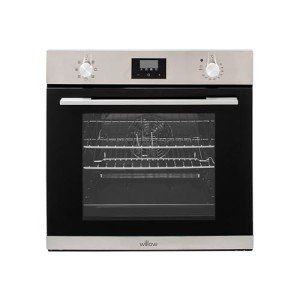The Integrated Cooker: A Comprehensive Guide to Modern Cooking Solutions
The development of kitchen appliances has actually reinvented cooking and cooking methods, making meal preparation more efficient and satisfying. Among these developments, the integrated cooker stands apart as a flexible and space-saving addition to contemporary kitchen areas. This short article looks into the different aspects of integrated cookers, including types, advantages, features, and a contrast with conventional cooking methods.
What is an Integrated Cooker?
An integrated cooker is a compact cooking home appliance that combines several cooking functions into one unit. Typically built into kitchen cabinetry, these cookers are created to save area while boosting kitchen looks. They typically include a range of performances, such as baking, barbecuing, steaming, and even pressure cooking.
Key Features of Integrated Cookers
- Multi-Functionality: Integrated cookers can perform numerous cooking tasks, removing the requirement for numerous appliances.
- Space-Saving Design: These cookers fit effortlessly into kitchen systems, making them perfect for contemporary homes with limited area.
- Advanced Technology: Many integrated cookers come equipped with wise innovation, such as programmable settings, touch-screen controls, and connection options.
- Energy Efficiency: Built with modern products and design, they often take in less energy compared to conventional cooking approaches.
Kinds Of Integrated Cookers
The market uses various types of integrated cookers, each with its special set of functions and performances. Here are the most typical types:
| Type | Description | Example Use |
|---|---|---|
| Built-in Ovens | Ovens that are suited wall systems or kitchen cabinetry | Baking bread, roasting meats |
| Induction Hobs | Cooktops that utilize electro-magnetic energy to heat pots and pans | Rapidly boiling water, sautéing |
| Steam Ovens | Appliances that cook food using steam for much healthier outcomes | Steaming veggies, fish |
| Microwave Ovens | Integrated microwaves for quick heating and cooking | Reheating leftovers, making popcorn |
| Combination Ovens | A mix of standard and steam cooking innovations | Baking while making sure moisture retention |
Advantages of Using Integrated Cookers
Integrated cookers offer a host of advantages over traditional cooking tools. Below are some of the key benefits:
- Space Efficiency: Ideal for compact kitchen areas, integrated cookers use vertical spaces successfully.
- Streamlined Cooking Process: With multiple functions available, users can transition from one cooking technique to another with very little effort.
- Boosted Aesthetics: Many integrated cookers can be found in streamlined styles that mix well with modern kitchen design.
- Improved Cooking Control: Programmable features enable accurate cooking, ensuring much better meal outcomes.
Integrated Cookers vs. Traditional Cooking Appliances
When thinking about meal preparation options, it is important to weigh the advantages of integrated cookers against conventional cooking appliances. Below is a comparison chart:
| Feature | Integrated Cooker | Traditional Appliances |
|---|---|---|
| Space Efficiency | High | Lower |
| Multi-Functionality | Yes | No (needs numerous appliances) |
| Energy Consumption | Typically lower | Can be greater |
| Cooking Speed | Faster (particularly with induction) | Varies |
| Design | Modern and streamlined | Varies commonly |
The integrated cooker is a forward-thinking appliance that meets the needs these days's hectic way of life. Its multiplicity of functions, space-saving design, and streamlined aesthetics make it a worthwhile financial investment for any modern kitchen.
For those wanting to conserve time, space, and effort in meal preparation, integrated cookers use an excellent service that enhances the cooking experience while delivering delicious, well-prepared meals.
Often Asked Questions (FAQs)
1. What is the typical price of an integrated cooker?
The price of integrated cookers can vary extensively, typically varying from ₤ 500 to ₤ 3,000 depending on features, brand name, and size.
2. How much maintenance do integrated cookers need?
Maintenance often consists of routine cleaning of surfaces and examining for any software application updates if they feature wise technology. It's recommended to follow the maker's guidelines.
3. Can built under oven and hob packages replace my existing oven with an integrated cooker?
Yes, integrated cookers can often change traditional ovens, however it is essential to seek advice from with a professional to ensure compatibility with your kitchen design.
4. Are integrated cookers tough to install?
Setup can be straightforward for those with DIY experience. Nevertheless, hiring a certified specialist is advised to ensure appropriate setup.
5. Who benefits most from using an integrated cooker?
Households, time-pressed people, and those residing in compact apartment or condos especially gain from the multi-functionality and space-saving design of integrated cookers.
In this age of benefit and performance, integrated cookers are redefining how we approach food preparation. Whether you are a skilled chef or a cooking beginner, integrating this powerful home appliance into your kitchen can significantly enhance your cooking experience.

